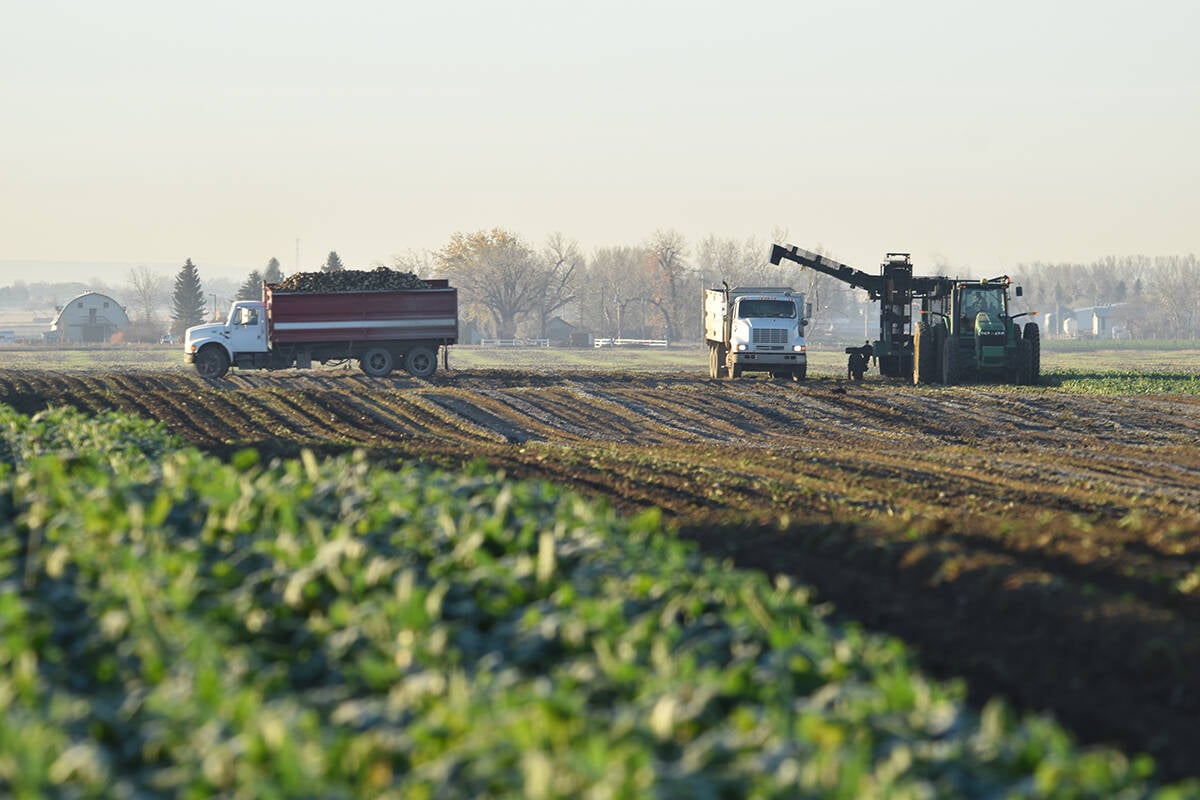Most of the provincial agriculture ministers attending a meeting with
federal minister Lyle Vanclief Dec. 4, said they expect the new regime
of farm programs to start next April, with details more or less the way
Ottawa wants them.
But the federal minister still faces sharp opposition from two
politically powerful provinces -Ontario and Quebec – and many farm
leaders.
“As far as the industry goes, we’re still a hell of a long way from
where we should be,” Canadian Federation of Agriculture president Bob
Read Also

Canada the sole G7 nation without a Domestic Sugar Policy to aid local sugar beet production
Canadian sugar beet industry vastly different to US with free-market system compared to protective government-regulated sugar program
Friesen said Dec. 9.
“We are being pressured into making stupid decisions to meet an
artificial deadline.”
If it starts April 1 as Ottawa wants and most provinces seem willing to
let happen, it will take three years to complete the full evolution of
programs.
“For the first time today, we heard with some finality that CFIP (the
Canadian Farm Income Program) is done March 31, so I think that will
speed up both us and industry because obviously we can’t be heading
into the 2003 year without some kind of disaster protection,” said
Prince Edward Island minister Mitch Murphy, one of three ministers yet
to sign the national farm policy agreement.
Saskatchewan’s Clay Serby, another holdout in signing, agreed.
During the six-hour meeting, Vanclief told attending provinces what he
has been saying in speeches and interviews for the past month – there
will be no extension of existing programs and on April 1, 2003, the
$500 million CFIP disaster program disappears.
In future, Ottawa will fund only a super-Net Income Stabilization
Account plan and expanded production insurance.
Most provincial ministers, who had entered the meeting vowing to demand
more answers, better information, more money and possibly an extension
in existing rules, emerged from the closed meeting to proclaim
themselves satisfied.
They will meet again Jan. 6.
“It was a good day,” said Manitoba’s Rosann Wowchuk. “We had a
commitment for more modelling. I think what is in the federal
discussion paper spelled out a lot of what is going to be there.”
Alberta, Nova Scotia and Newfoundland did not send ministers.
Still, for all his success with the smaller provinces, Vanclief
continues to have a major political problem selling his vision of a new
five-year national farm program based on NISA and crop insurance.
Quebec is refusing to sign, insisting that Ottawa send the province its
share to be spent by the provincial government on existing provincial
programs, rather than on NISA and production insurance.
Ontario minister Helen Johns has emerged as Vanclief’s toughest
opponent, insisting that his “two big programs” approach will not work
for Ontario’s diverse farm economy where two-thirds of the 200 crops do
not now qualify for crop insurance.
“The program they have designed is for a small number of crops and is a
rigid system,” an angry Johns said after the meeting. “Ontario’s
agriculture community is very fluid and it needs a lot of protection.
It needs a better job than we did today.”
Still, Vanclief appeared to emerge from the Dec. 4 meeting with enough
provincial support to launch the new system next spring.
If provincial ministers do not get chastised by their farm groups and
reverse their stance before the Jan. 6 meeting, the new programs that
start to unfold April 1 will include:
- A three-year transition into a new so-called super NISA will include
a higher contribution potential, a rule that federal matching money is
given only when farmers withdraw their own money, a promise that
existing NISA accounts will be left alone and a potential link between
NISA and production insurance.
- NISA would include a disaster fund. As well, farmers would be able to
withdraw funds to invest in food safety or environmental improvements
on their farm.
- Crop insurance would be changed to production insurance to allow
livestock coverage. New whole-farm policies would be available but
there will be little change for 2003.
- Federal funding for provincial companion programs would dry up over
three years. After that, provinces would have to entirely fund their
own special provincial programs, since all federal dollars would go to
production insurance, NISA and cash advance programs.














